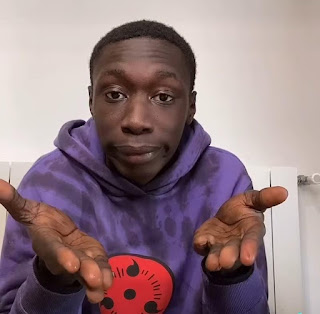Hi, this is our third deliver in our "demystifying series".
Among all these pandemic, viral and addictive fancy things that are propagating in the "agility market", such like "scale frameworks" and other type of unicorns... there is also the buzzwords of "cultural change".
Today my goal is to help you to differentiate between "smoke sellers" and real "cultural change agents". (if I can)
What is a "culture"?
Regarding Humberto Maturana, Human culture is defined in the various networks of conversation. We can speculate that the human lineage arose when languaging arose in our manner of living and it would have arisen out of coordinations of behaviour in the context of our emotioning.
Is a set of collective believes, emotions and the consequential behaviour. We can say that something is "cultural" when we can observe it among the majority of a social group, and not only in one individual.
We as humans, we are cultural, because we have language. But also we are alive beings, so we are biological. That's why Maturana made studies about Cultural-Biology. And Culture as a phenomenon, we can say is a biological adaptive process. Is a social behaviour.
Its our "learned way of being".
so...
How does a culture change?
As an adaptive biological-linguistic pehnomenon (cuack!) (what!?) ...
Ok, wait... we said we, as humans, are alive beings. (biological)
And... we have language. The combination between our biological condition and our language skills, makes us cultural beings.
The culture, as social group behaviour, has no other mean than to survive and conservation our alive status.
So... as a biological feature, culture has many basic functions: to be conservative, and to be adaptive.
When we learn some way to survive, we have the instinct to conserve that learning. Because if we loose it, we could die...
Also, when environment changes, activates in us an instinct of being adaptive. To change and adapt to the new conditions.
So then if culture would be a "material", it has the hability to keep its structure, and to change it when is needed. Something like plastic, that can be rigid, but it can change the shape, and became rigid again...
Culture is changing all the time. Actually is better to say, it is "transforming". There is not such a thing like immutation. What we cannot do is to "manipulate it", or at least makes non-sense... because if its an adaptive phenomenon, if we manipulate it, when we leave it alone, will re-adapt again to its original position.
Makes non-sense to be "driving" a cultural change process. How could we know, and design what culture is the right one?
Non-sense!
The culture will be always the right one, the question is if our culture is able to adapt to our environment, or it is in "conservative mode" and loosing adaptive opportunities. (like conserving a hierarchical culture in 21 century, for software development teams)
So... culture is created by learning. And by learning will be changed. Also you can fire your conservative employees, and hire fresh ones with better culture than you have... yes it will work also. But here we are talking about natural process.
After hiring and firing, we have education. Internal Ontological Coaching sessions, with external coaches is the best option. Because Ontological Coaching is the art of reflection. And individual reflection is the key path to cultural change.
After hiring and firing, education and coaching. We can change environment. We cannot manipulate culture (or we shouldn't) but we can change the environment, rules, bonuses, hierarchies, reports, communication styles, command and control processes...
When I am trying to facilitate cultural change processes, many leaders tells me: "don't change that meeting", "don't remove those reports"....
...dude... that is exactly what we need to do... If we don't remove the reports and the reporting meetings, we will never get rid off the "reporting culture".
How can we develop a more "self-orgnaize culture"?
... the answer is in the question. Let people self-organize and fail safely. That way they will learn. They will cultivate themselves that culture.
- "oh but we are not fail friendly"
Let people fail and learn.
How many quantum physicians do we need?
None. You don't need even any kind of scientists. Please leave scientist to do science. Remember: culture is about biology, learning, language, emotions and adaptation.
- Just create the environment to enable cultural adaptation.
- Open coaching spaces for individual reflection with external systemic coaches.
- Open education spaces everywhere (communities, trainings, open spaces)
Let it happens... and avoid the temptation to try to manipulate culture.
- Identify your need to acquire a cultural shift (or not)
- try to find what are your adaptive obstacles or suppressors
- work on them to let your culture flow... and flourish
Happy Flow! Happy Cultural transformations!
At your service
Daniel Ceillan






